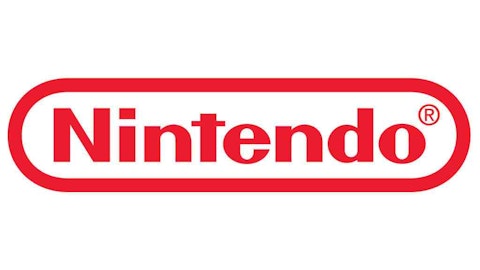
A Struggling Product
Bloomberg quotes research firm IDC in pegging Surface sales at about “900,000 units in each of its first two quarters on the market.” That’s helped the company gain a nearly 4% share in the tablet space, but that’s not a particularly impressive number in one of the fastest growing tech categories.
The weak start for Surface shouldn’t be surprising. Outside the Xbox, Microsoft Corporation (NASDAQ:MSFT) isn’t known for making devices. It has to change customer perceptions and create a viable sales infrastructure. That takes time and commitment.
For example, Apple Inc. (NASDAQ:AAPL) wasn’t an overnight sensation. It had to build a store base and cache. Clearly the company’s leading edge products helped, but every product hasn’t been a success. For example, Apple TV has been very slow to catch on. Microsoft Corporation (NASDAQ:MSFT)’s “me-too” tablet will face an uphill climb to break into the rapidly maturing market.
The question is, how committed is Microsoft Corporation (NASDAQ:MSFT) to this effort? The Surface is part of a larger shift taking place. Like Apple Inc. (NASDAQ:AAPL) and Google Inc (NASDAQ:GOOG), Microsoft is trying to build an ecosystem in which customers can move fluidly from one offering to the next. To that end, its Windows Mobile, Windows 8, and Surface all share a similar user interface.
Moreover, the company just announced a management shakeup. Although it came with the typical pomp and circumstance of such corporate actions, the end result is clearly to shift away from a product-specific organization and toward one that works holistically to support a products and services focused model.
Still a Turnaround
Microsoft Corporation (NASDAQ:MSFT)’s shares had perked up as investors grew more comfortable with its mobile efforts, but dropped notably on the impact that the Surface had on June period earnings. That said, its top-line has headed higher since 2009, though earnings fell between 2011 and 2012 because of new product efforts. The shares have a price to earnings ratio of around 16 after the sell-off, which puts them back into relatively “cheap” territory in the tech space.
But it’s important to note that Microsoft Corporation (NASDAQ:MSFT) is still a work in progress. The restructuring and Surface price cuts are clear evidence of that. Still with a yield of around 2.6% backed by a decade of annual dividend increases, growth and income investors shouldn’t be afraid to take a look at this shifting giant.
A Former Friend
Google Inc (NASDAQ:GOOG) might actually help Microsoft Corporation (NASDAQ:MSFT) out in its efforts. Google is increasingly competing with its partners, including the launch of a stripped down PC (Chromebook), a cell phone (Moto X), and the rumored launch of a game system and other devices. That’s already pushed SAMSUNG ELECT LTD(F) (OTCMKTS:SSNLF) to create its own mobile OS, called Tizen, to reduce its reliance on Android.
While Samsung has the wherewithal to build its own mobile OS, others will likely seek out partners. Since Apple Inc. (NASDAQ:AAPL) doesn’t share, Microsoft Corporation (NASDAQ:MSFT) is the most obvious choice. That could make Windows Mobile an important foot-in-the-door product.
Google Inc (NASDAQ:GOOG), meanwhile, is taking on notable risks with this shift. Its profit margin has already fallen ten percentage points in two years because it makes less money from mobile advertising than it does from online ads. And, perhaps more notably, making devices isn’t as profitable as advertising. So there is the very real potential for bottom-line weakness if sales slow down.
Google Inc (NASDAQ:GOOG) shares are trading with a PE of around 26 and are near all-time highs. Clearly the market has high expectations. If the company’s shifting business doesn’t live up to those expectations, investors are likely to jump ship.





